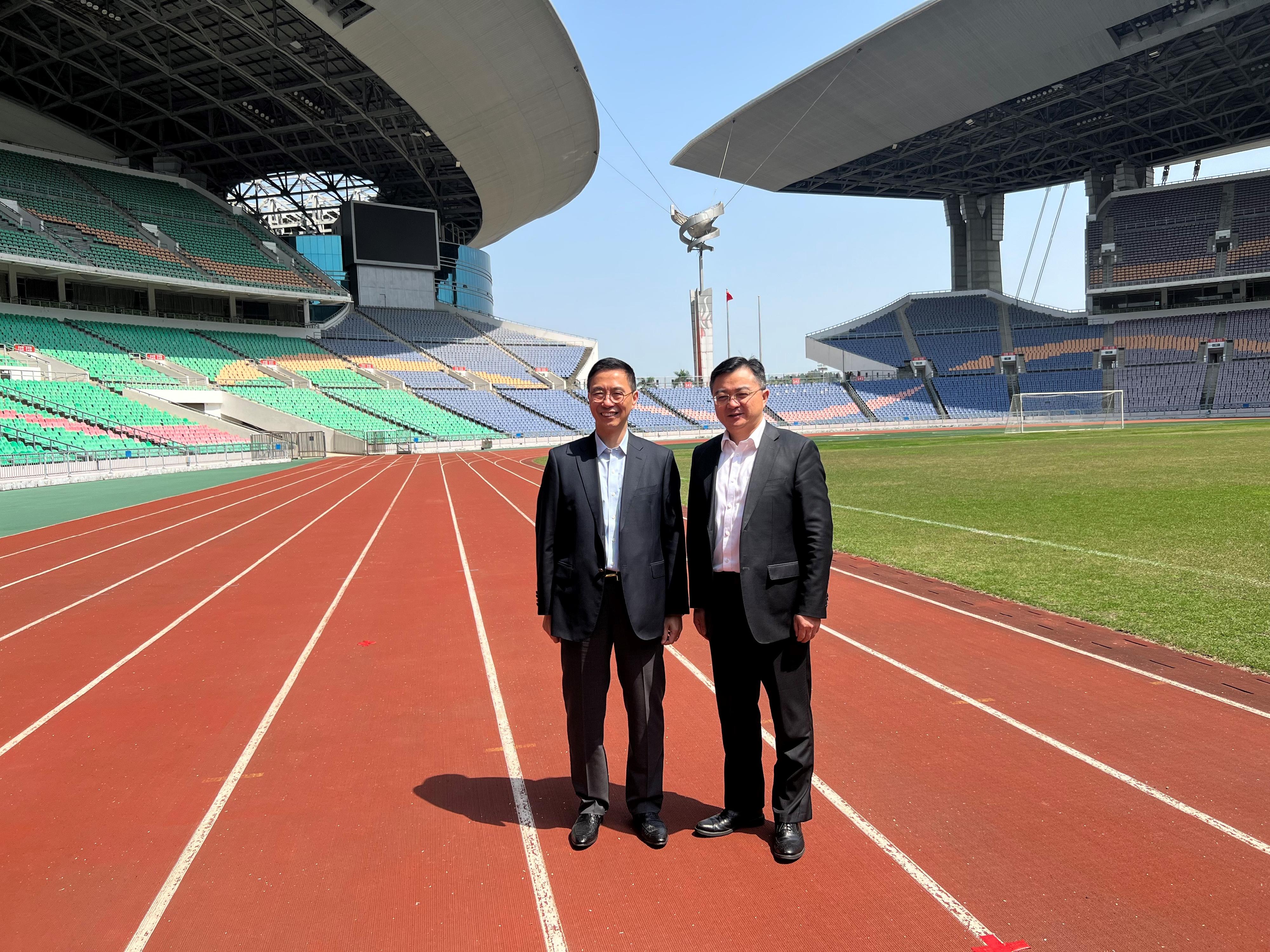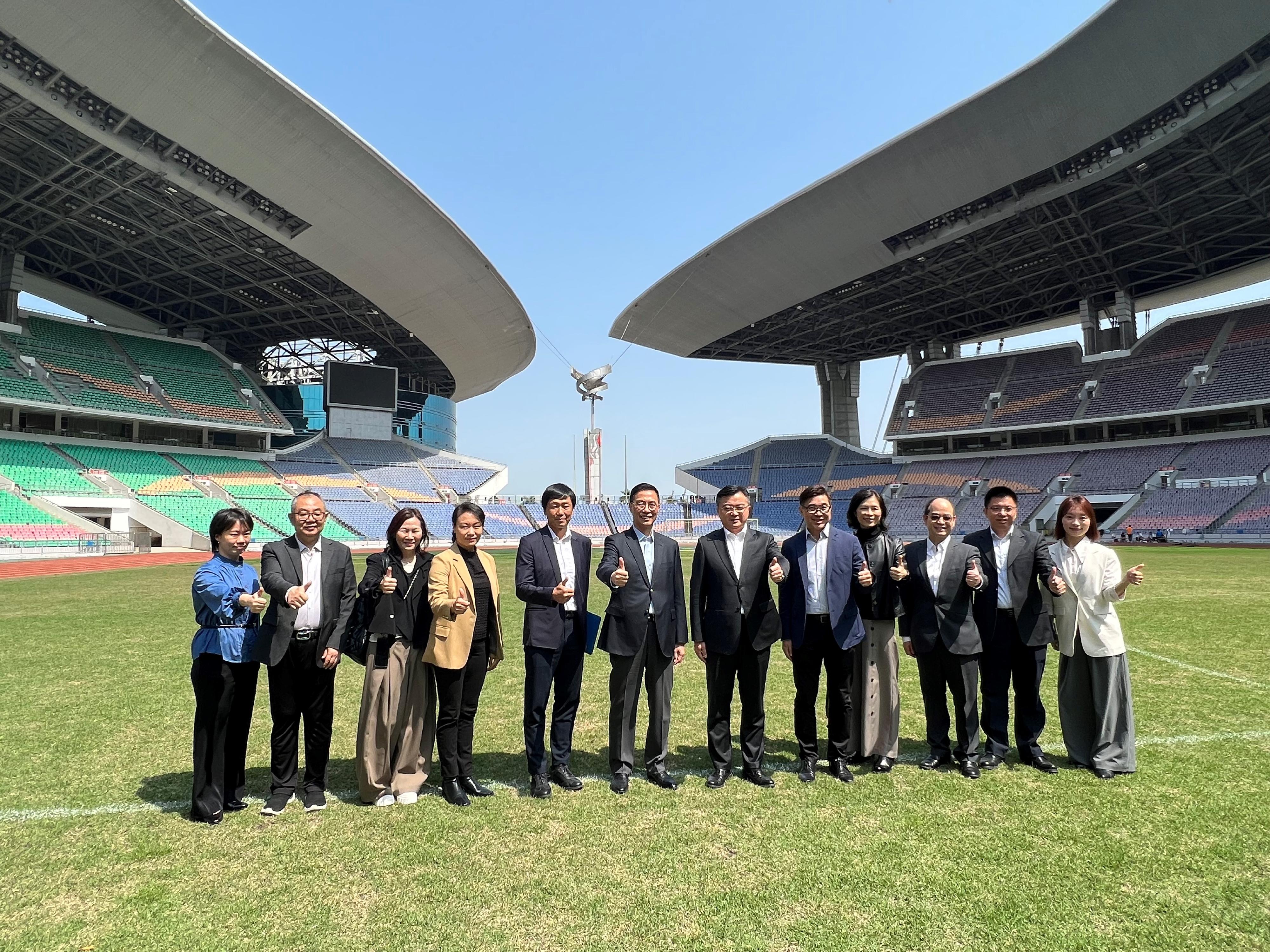Following is a question by the Hon Judy Chan and a reply by the Secretary for Environment and Ecology, Mr Tse Chin-wan, in the Legislative Council today (March 20):
Question:
To tie in with the implementation of municipal solid waste charging, the Government is setting up a territory-wide retail network of designated bags (D-Bags). It also encourages authorised retailers to, apart from selling multiple D-Bags in a pack, sell single D-Bag at the checkout counter in place of plastic shopping bags (PSBs) for customers to carry goods, with a view to achieving the effect of "one bag for two uses". However, there are views that customers tend to go for PSBs which are cheaper, hence causing unnecessary wastage. In this connection, will the Government inform this Council:
(1) given that the authorities will offer authorised retailers a service fee similar to retail commission for their provision of retail sales service of D-Bags, of the average service fee rate;
(2) given that a "retention" operation approach is currently adopted for the charges collected under the Plastic Shopping Bag Charging Scheme, how the authorities will prevent authorised retailers from inclining to sell PSBs for a higher profit instead of selling more environmentally friendly single D-Bag with dual uses; and
(3) whether it has plans to require authorised retailers to cease selling PSBs in the foreseeable future; if so, of the timetable; if not, the reasons for that?
Reply:
President,
In order to reduce the usage and disposal of plastic shopping bags (PSBs), the Government implemented the first phase of the PSB Charging Scheme in July 2009, covering some 3 000 retail outlets, which were mostly major supermarket chains, convenience stores as well as healthcare and cosmetics stores. The Scheme was expanded to cover the entire retail sector in April 2015. To maintain the effectiveness of the Scheme to reduce waste, we implemented measures to enhance the Scheme on December 31, 2022, including increasing the minimum charge per PSB from $0.5 to $1 and tightening the scope of exemption. Upon implementation of the enhanced Scheme, according to the information obtained by the Environmental Protection Department (EPD) from major retail groups (including major supermarket chains and convenience stores) in Hong Kong, the overall distribution of PSBs (excluding flat-top bags) dropped by more than 60 per cent in January and February 2023 (i.e. the first two months after the implementation of the enhanced Scheme) as compared to the same period in 2022, and the distribution of the newly regulated flat-top bags by major supermarket chains even dropped by more than 80 per cent, showing significant reductions.
To facilitate the implementation of municipal solid waste (MSW) charging on August 1, 2024, the EPD has established a retail network covering all the districts in Hong Kong to enable the public in purchasing designated bags (DBs) and designated labels (DLs) to pay the MSW charge. To strengthen the promotion on waste reduction and reuse of resources, as well as further reducing the usage and disposal of PSBs, the EPD encourages retailers to sell single DBs at the checkout counter as an alternative to PSBs for carrying goods to achieve the effect of "one bag for dual use".
Our replies to the questions raised by the Hon Judy Chan are as follows:
(1) The retail network of DBs and DLs comprises around 3 000 outlets covering supermarkets, convenience stores, pharmacies and online platforms. Sixteen major retail chains have signed the Authorization Agreement to become authorised retailers to gradually commence the sales of DBs and DLs at around 2 500 outlets and 13 online platforms. In addition, we have signed agreements with two wholesalers to provide support to more than 600 small stores (including small- and medium-sized pharmacies) in selling DBs and DLs. The outlets will gradually provide the retail service, with more than 400 of them selling DBs and DLs to the public at present. Details of the outlets have already been publicised on the MSW charging thematic website and will be updated from time to time. As the sale of DBs and DLs incurs various operating costs, such as shop rental costs, inventory management, logistics distribution system and manpower deployment, the EPD offers service fee to authorised retailers to help with these costs. The service fee received by individual retailers is determined by certain objective criteria, including the number of participating physical retail outlets, areas covered by the outlets, their experience in selling garbage bags or household cleaning products, the size of logistics fleets, the number of registered users of online platforms, the variety of products to be sold and whether they are providing "one bag for dual use" service. The rate of retail service fee received by each retailer is a consensus reached between the EPD and the retailer through negotiations and is sensitive commercial information. The Authorization Agreement signed between the EPD and each authorised retailer also stipulates that the rate of retail service fee shall not be disclosed. We are therefore unable to provide such information.
(2) On the implementation of "one bag for dual use", more than 90 per cent of the authorised retail outlets of DBs have agreed to sell single DBs at the checkout counter in the future to enable the public to buy DBs for carrying purchased goods and afterwards wrapping waste for disposal. There is no need to purchase additional plastic bags. Since the public is required to use DBs for waste disposal after the implementation of MSW charging, additional costs will be incurred if they choose to purchase other plastic bags instead of DBs to carry their goods when shopping, regardless of how cheap the other plastic bags are, they will be paying more as a whole. While the public may not have adapted to the use of DBs at the early stage of the implementation of MSW charging, it is certain that eventually they will be more inclined towards "one bag for dual use" and purchase DBs in lieu of PSBs to reduce their expenditure. On this, we have noticed that some authorised retailers have begun planning to cease the sale of regular plastic bags in the future and sell only DBs to reduce their costs.
(3) As mentioned above, more than 90 per cent of the authorised retail outlets have committed to providing the services of "one bag for dual use". We will continue to promote the arrangements and its advantages through publicity and education, and encourage more retailers to provide such service to promote waste reduction and reuse of resources, with a view to further reducing the usage and disposal of PSBs. We believe that as the public has gradually adopted the habit of waste reduction and recycling, as well as bringing their own bags when shopping, more people will choose to purchase DBs to carry their goods when necessary so that their expenditure would be reduced. The current need for retailers to sell other PSBs will gradually decrease. As aforementioned, we have noticed that some authorised retailers are planning to cease the sale of regular plastic bags in the future and sell only DBs to reduce their costs. We therefore consider it unnecessary to mandate the authorised retailers to stop selling PSBs through legal means.



